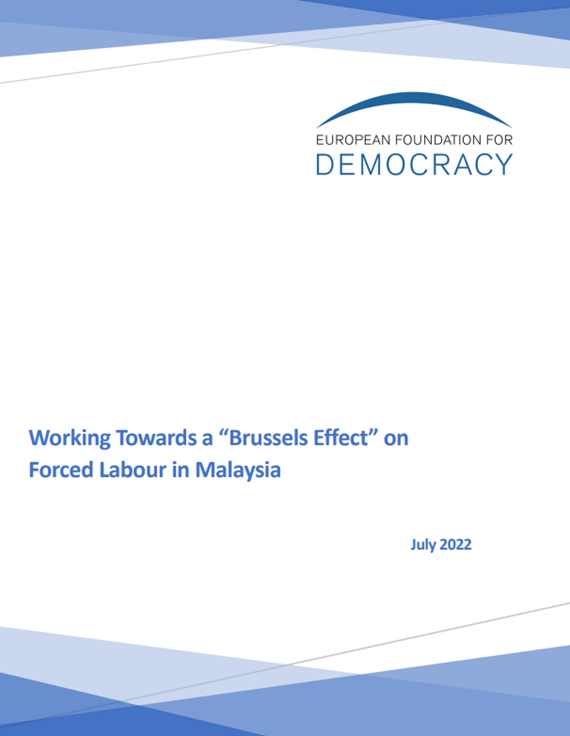Publication
Working Towards a “Brussels Effect” on Forced Labour in Malaysia
by Holger Loewendorf, Senior Advisor
Forced labour is a persistent problem worldwide. International organizations, including the
European Union, and several countries – led by the United States - seek to end abusive labour
practices. Their commitment is reflected in new domestic regulations, due diligence
requirements for companies, new provisions in trade agreements, and additional customs
requirements that align with international norms such as those endorsed by the International
Labour Organization. However, implementation and enforcement remain problematic.
This paper outlines recent developments in the fight against forced labour and uses Malaysia and
the palm oil industry in Malaysia as a case study to show how a specific country is attempting to
meet international standards and. present itself as a reliable partner. The policy
recommendations made here can assist the European Union in the development of more
effective regulations against forced labour in order to assume a global leadership role.
These recommendations include asserting moral leadership by immediately and forcefully
addressing forced labour problems that exist in EU Member States; ensuring that new regulations
do not restrict trade and avoid the temptation of protectionism; differentiate between countries
with a track record of systemic forced labour and those who recognise and are attempting to
resolve labour issues; and using EU partnerships and funding to support labour rights activities in
partner countries.
The paper can be read here

